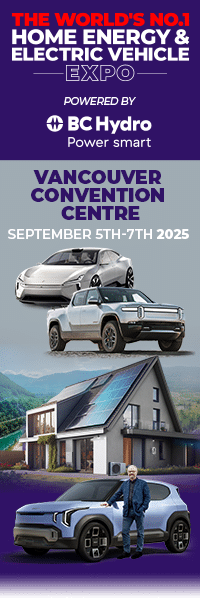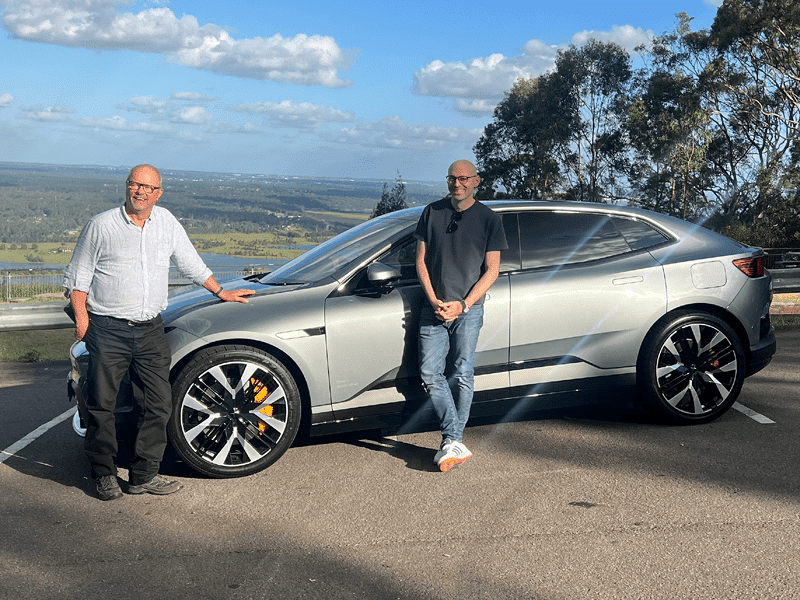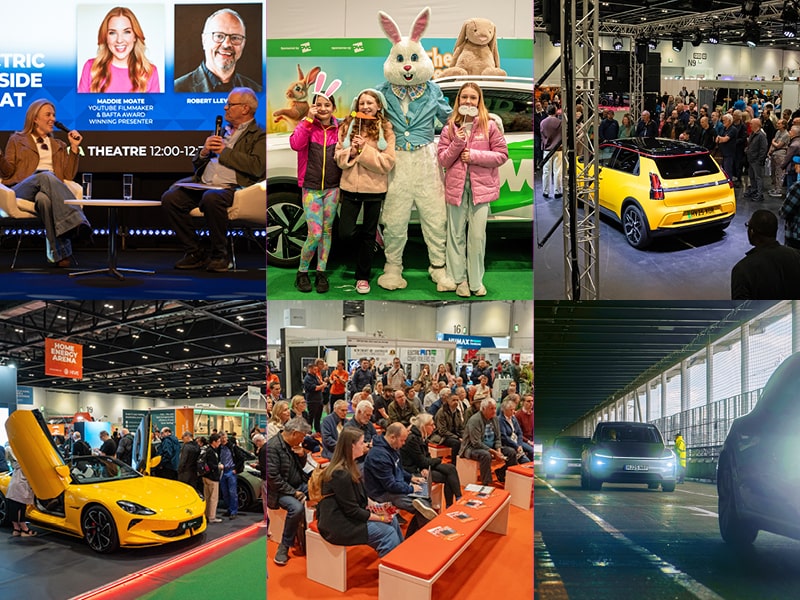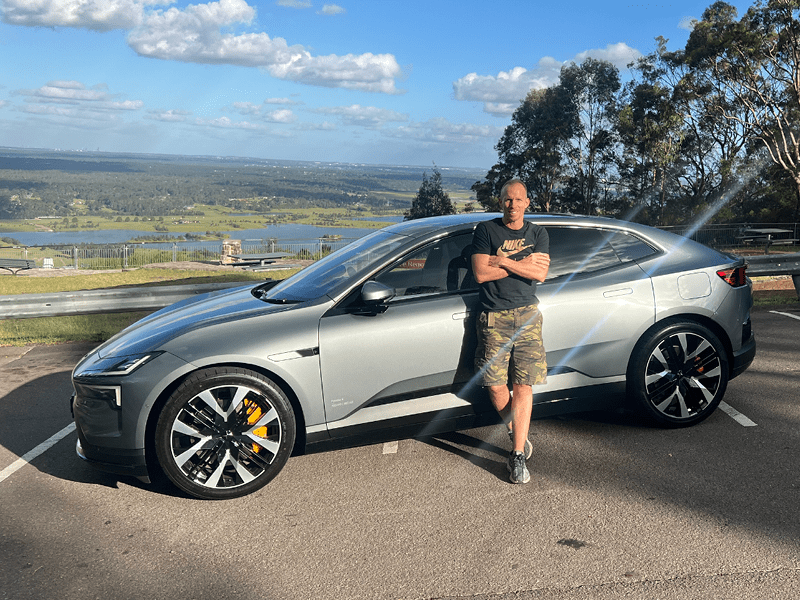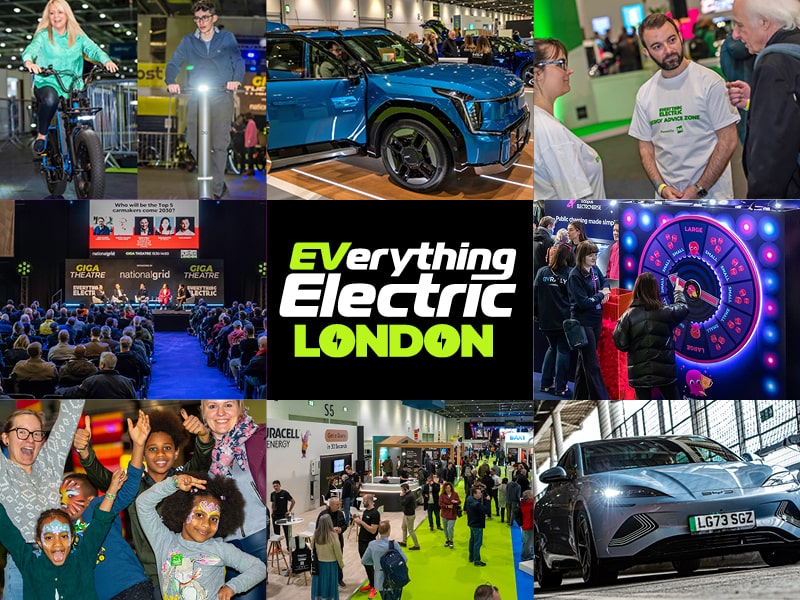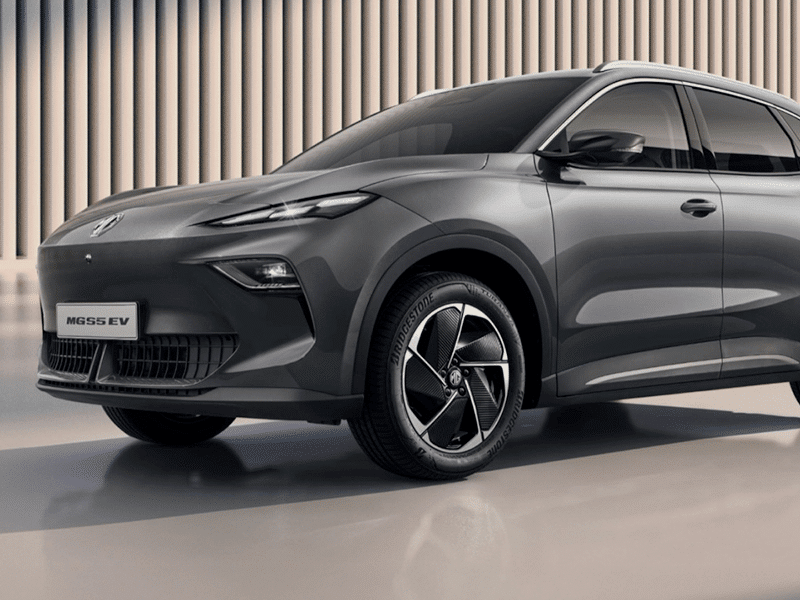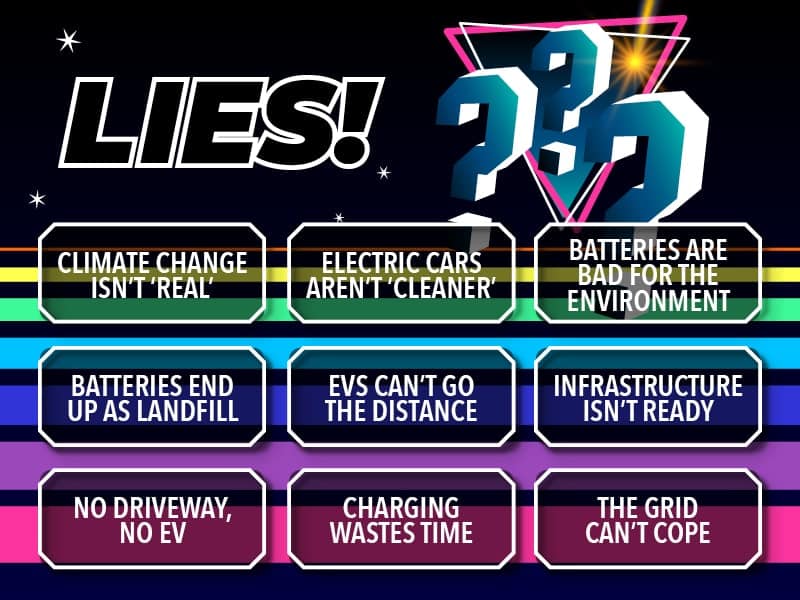
In 1907, Mark Twain wrote ‘there are three kinds of lies: lies, damned lies and statistics’ and deception is of course an essential part of the human condition. Just ask Adam and Eve 😉
‘Alternative facts’ was a phrase coined by Kellyanne Conway almost 6 years ago to the day, when defending the false attendance numbers at Donald Trump’s inauguration.
There’s nothing new about politicians spewing brazen lies, but this ‘whopper’ was borderline Orwellian – “The Party told you to reject the evidence of your ears and eyes.”
Lately, fuelled by social media, cranks, conspiracy theorists and corporate shills have created platforms where they can espouse some of the most blatant bullshit imaginable.
And sadly there is almost always an audience of credulous individuals that lap up lies that speak to their own biases, misperceptions and in a very many cases, ignorance.
An area where it is especially obvious to anyone that owns one, is in the polluted discourse that surrounds electric vehicles, and it isn’t hard to understand why this exists.
To a large extent the economies of the world are underpinned at a fundamental level by the business of fossil fuels for energy, transport, industry, buildings and so on.
A switch to electrification, especially of the self-generated variety, is enough to give those that profit from fossil fuels at a small, medium or industrial scale, nightmares.
The energy transition away from combustion technologies, represents the single biggest transfer of wealth in the history of mankind. Some will do *anything* to stem that flow.
I sadly suspect that we haven’t seen anything yet, and that there are many dirty tricks up the sleeves of those ‘suits and ties that tell lies’. Their very livelihoods depend on it.
So whether it’s those that deliberately pour toxic information into the public domain, or those that spread it out of ignorance, remember, every EV sold is a small victory for a better future.
Recently, anti-EV rhetoric has seemingly hit new heights. Perhaps, it’s the unstoppable growth of pure EV sales in spite of slowing overall car sales that has upset the ultracrepidarians.
But whatever the reason, I sense panic. So here’s a reminder of some of the most common misconceptions, mistruths and myths about EVs, and most importantly how to counter them:
I should point out that if the FullyCharged.SHOW is new to you, we’re an independent YouTube channel that has been covering electric cars for >12 years, we drive electric, and we do not make money on car sales.
1 – CLIMATE CHANGE ISN’T ‘REAL’
Let’s start with the big one, let’s say you don’t believe the almost total, scientific consensus on ‘Climate Change’, it matters not. There’s another compelling reason to switch to a pure, battery electric vehicle, and that’s air pollution. There is no scientific doubt that tailpipe pollutants from combustion engine vehicles are a poisonous cocktail of carcinogens. It’s possible that you couldn’t care less about those that live in the most polluted parts of your city or town – like Ella Kissi-Debra the 9 year old who lived on the South Circular and who had ‘air pollution’ included as a factor in her cause of death – yet what about those that travel in your very own ‘toxic box?’ Perhaps it’s out of concern for your partner, perhaps it’s your kids, or perhaps it’s out of self-concern, but maybe it’s the in-car air pollution that will persuade you that a vehicle without an engine is a much, much safer bet.
2 – ELECTRIC CARS AREN’T ‘CLEANER’
This hoary old chestnut has been around for a while and certain nefarious corporations have funded ‘studies’ to testify to this fact, however they’ve been thoroughly debunked. It doesn’t stop these stories from still doing the rounds, and you will most likely hear lies along the lines of it takes 80,000 miles (or 7 years) of driving for the the benefits of zero emissions at the tailpipe to overcome the embedded carbon that is involved in the manufacturing of an electric car and its components (including the batteries). These myths exist because car companies like Aston Martin published an erroneous report to this effect, thankfully the likes of Auke Hoekstra from the Eindhoven University of Technology have demonstrated that electric cars are cleaner over 16,000 miles (which could for some be half a year) of driving, and this is even on the dirtiest (usually coal-powered) grid.
3 – BATTERIES ARE BAD FOR THE ENVIRONMENT
There is no little irony, that this accusation regularly comes from the combustion technology industries, when those sectors have been globally exploring and mining, drilling and refining and ultimately burning fossil fuels to the atmosphere at an industrial-scale for decades, but let’s not start flinging mud 😉 The truth is batteries are a serious threat to these technologies and as such you will have certainly seen images of scarified open cast mines, pictures of Congolese children in mining for cobalt and have heard of the scarcity of ‘rare earth’ materials. Sorry to disappoint, but the high profile nature of the electric car industry – especially the lightning rod that is Tesla – has seen new mining techniques pioneered, cobalt being removed from batteries (lithium ion is being overtaken by lithium ferro-phosphate), and what’s more there is no shortage of the required materials – rare earths is a misnomer. Whether we will be able to access the materials quickly enough to satisfy demand is a valid question, but throughout history whether it’s been coal, wood, oil or gas, there’s rarely been any shortage of ingenuity when it comes to corporations making money.
4 – BATTERIES END UP AS LANDFILL
And the real reasons that batteries are a threat? Well first of all, those that say the batteries won’t last and that they contribute to environmental waste are, appropriately enough, talking rubbish (garbage). The terrifying reality for combustion engine manufacturers is that electric batteries are lasting much, much longer than bad actors like Clarkson predicted over a decade ago. Sure the mk1 Nissan LEAF has a poor reputation for battery degradation, but there are numerous electric cars (not least Teslas) running around on 300k+ miles. Secondly, unlike the fossil fuels that we burn, after their first life in cars, they can then have an even longer second life (e.g. in buildings), before being almost entirely recycled. So whichever way you slice it the environmental impact of batteries, as opposed to the impact of combustion engine vehicles is definitely the lesser of two evils.
5 – EVS CAN’T GO THE DISTANCE
To paraphrase this statement usually goes along the lines of ‘I need to drive from Greater London to Glasgow to get to work, and I absolutely cannot stop under any circumstances because I am so important’. If you are the 0.0001% of the population to whom this straw man *genuinely* applies then you probably could drive an electric car, but you definitely should get a new job. Sarcasm aside, there’s a very sizable choice of electric cars that have >200 miles of ‘real-world range‘ even in winter, and many of those can do >260 miles in the worst conditions. As such, from personal lived experience I can confirm that I have averaged around 30,000 miles per annum over 6+ years of electric car driving. Admittedly, it is easiest in a Tesla due to its seamless Supercharger Network, but it wasn’t exactly difficult in my previous EV either (Hyundai Kona). But more on that below…
6 – INFRASTRUCTURE ISN’T READY
There’s a perceived wisdom (and I am talking about the UK here) that the ‘route charging’ infrastructure isn’t up too much. I’m going to level with you, it is not perfect. By its very nature the build-out of EV charging has to keep up with EV sales, and while this is a challenge, overall utilisation rates are relatively low and do not support the perception that the occasional tabloid scare story takes pleasure in perpetuating. The real issue is that there are holes in the system – blackspots where coverage isn’t as complete or bricked chargers – encountering one of these holes can cause ‘charge anxiety’ at best, or extreme frustration at worst. Yet, as is often the case the perception is worse than reality and also ignores a key factor – a staggeringly high percentage of charging takes place at home, at business sites and at destinations. When you get your first EV it will quickly become clear that ‘route charging’ represents a tiny fraction of your total experience. This is not to say that the holes in the system do not need to be filled, they do, urgently, but investment in charging is growing at record rates.
7 – NO DRIVEWAY, NO EV
At the FullyCharged.LIVE events around the world I’ve lost count of the number of our attendees that are living very happily with an EV, even though they have no driveway. If you haven’t had the pleasure of owning an EV, you might quite rationally assume that you plug your car in every night, as you do with your smartphone, but that’s simply not the case. On average, EV owners charge their car once or twice a week, as such it’s not all that difficult to charge an electric vehicle, more a less as you’ve filled up your combustion engine vehicle since you passed your driving test. After all, you don’t have a petrol station at home, so why does this feel so different? Well, you can’t charge quite as quickly that’s true, but if you search on Zap Map you might be surprised at how many slow, fast and rapid charging options already exist in your neighbourhood. And we’re just getting started.
8 – CHARGING WASTES TIME
The smuggest amongst us know that feeling when you wake up ‘fully charged’ and in that instance there’s no waiting at all. Imagine a valet bringing a freshly fuelled car to your house every morning (and on the coldest days defrosting it and preconditioning it too). When you’re out and about there’s not much in the way of waiting either, perhaps you add charge while you’re doing something more important at the supermarket, at the sports club or at a pub. If you have charging at your place of work, you are the most fortunate of all; you might even be able to persuade your work to pay for your electrons. So who’s waiting, really? Well again, it’s the route charging – something you will do much less of than you might expect – but with the rapid charging speeds available en route and on many electric cars, you can easily be on your way again in 20-40 minutes. 40 minutes, I hear you cry, I can’t wait around that long. Well, all I can say is you would be surprised how much time you spend ‘stretching your legs’ and everything else at a motorway services. Personally, I’ve never found it to be an inconvenience.
9 – THE GRID CAN’T COPE
No matter how many times the National Grid (the organisation responsible for transmitting electricity from generator to consumer) confirms that this won’t be a problem, this myth still persists. There are a couple of reasons why the real experts – not the Daily Mail reader who imagines that we go 100% electric in a single night – are intensely relaxed about the prospect of an all-electric car parc. First of all, grid electricity usage has through a combination of factors (energy efficiency, energy reduction, low energy lighting etc) already been trending downwards and the current usage is set to continue on that trend, so there is some existing headroom, and yes technologies like heat pumps have been modelled into National Grid’s excellent Future Energy Scenarios. Secondly, while almost all car sales (in the UK) will likely be pure electric by 2030, this does not mean that all cars will be electric at that point; older cars will be running around well into the 30s, and as such we will see a fast, but manageable growth trajectory where grid management (reinforcing, strengthening etc) is possible at a similar pace. NB sales of pure electric cars has reached more than 85%, and there have been no problems with their grid supply.
10 – BATTERIES CATCH FIRE
Well, first of all anything that contains significant amounts of energy is ‘potentially’ explosive. See here for an image of a 1,000 car fire that took place at the Liverpool Arena in 2016, and that didn’t involve a single electric car. What’s more, statistically as a proportion of all cars out there, your trusty combustion-engined car is more likely to catch fire than an electric one. So where does this perception come from? Well let’s put it this way whenever an EV does catch fire it makes the news, not so with conventional cars (hardly newsworthy) and similarly with household explosions look carefully and you will rarely see gas boilers confirmed as a cause (again it’s hardly newsworthy). The one area where batteries are more ‘dangerous’ is that in some instances when they do experience ‘thermal runaway’ they burn hard, and are much harder to extinguish. While emergency response teams are being trained to tackle this symptom, it does not tackle the root cause. The good news though is that organisations like BYD are pioneering new batteries (like the ‘Blade’ battery) that are much less likely to catch fire.
11 – BATTERIES CATCH COLD
Yes, electric cars suffer from reduced range in colder conditions, but guess what, combustion engine cars are also affected by the same phenomenon. It’s certainly a consideration for when you are undertaking a long journey in the winter, but at worst it means that you might have to endure slightly shorter intervals between charging. It’s certainly worth mentioning that the significant majority of the population don’t tend to take as many really long trips during the depths of winter, but what would happen if you were to? And what if the worst case scenario of being stuck in your car in the snow occurred? Well, the answers might surprise you, the Tesla Model 3 owner that was stuck in a snowstorm for 14 hours on the I-95 in Virginia fared surprisingly well. And in frigid Norway, a Tesla driver has proven that his EV can keep him warm for a ‘staggering 72 hours‘.
12 – EVS WEIGH TOO MUCH
This is a curious complaint, given that the car industry has created a vehicle obesity epidemic with its SUV obsession and I’ve barely seen anyone bat an eyelid. It is true that a directly comparable car – let’s say a pure electric Hyundai Kona, will be heavier than its combustion counterpart – but another aspect of electric car design is that (finally) efficiency of design aerodynamics, motors and lightweighting are under intense scrutiny. We are confident that the measurement of kWh (kilowatt hour) will drive positive change in the sector as a whole. Additionally, more weight will lead to an increase in tyre particulates – again something we’ve never seen levelled against SUVs – and much is made of the extra torque that electric cars offer, but little is made of the regenerative braking and one-pedal driving that will revolutionise the energy we use when driving. Funny that.
13 – EVS CAN’T TOW
For the small percentage of those that tow, I can simply state that most early electric cars could not tow, hence this persistent misperception. However, this is no longer the case and more and more electric vehicles can tow. There’s even a website called Electric Tow Cars that are dedicated to those that can.
15 – HYBRIDS & HYDROGEN ARE THE FUTURE
There are still people that swear blind that Betamax was better than VHS, or for the younger amongst you that Blackberry was better than Apple’s iPhone, but the victors are clear. The iPhone is a better example though, as it didn’t just juice the Blackberry, it killed Kodak, it even obliterated the iPod, as well as spawning a million apps. That is the level of disruptive impact that the electric car will have on the traditional automakers, dealerships, oil companies, suppliers and much more. The Hydrogen car is a tired reboot of an existing format, and is uncompetitively expensive, with next to no infrastructure. It’s a classic chicken and egg situation, and you only have to look at the BEV (battery EV) vs FCEV (fuel cell EV) sales charts side by side to see that there is no competition. And as for hybrids, Toyota’s Prius is 26 year old tech; obsolescence beckons.
16 – EVS ARE SOULLESS & SILENT
Anthropomorphising means attributing human qualities to non-human things, and the automotive Ad Men have done an incredible job of imbuing cars with personality, but spoiler alert, they’re just (mass-produced) machines. I have to confess to treating comments from adults that cars have souls with disdain, and have been known to retort with ‘I stopped making vroom-vroom noises at about 6 years old’. There is a serious point, some of the things automotive aficionados believe confer a soul on a car, the throaty roar of the engine, the evocative scent of petroleum products, or the complex workings of the combustion engine, have (through advertising) been hardwired into what we have come to expect of a car. The reality though is the complexity of the combustion engine car means it’s far more likely to break down, that scent is a mix of toxic substances and the noise (and heat) that the car emits are signs of colossal amounts of energy being wasted. In truth, an electric car is cleaner, quieter, simpler and all the better for it. And the gut punch, the performance and experience is better too. As a footnote to the question I was asked only the other day – what about the fact that they are silent and can’t be heard coming, as if as soon as someone buys an electric car they transmogrify into a sociopath that would like nothing better than to mow down an unsuspecting pedestrian in public, outside a supermarket. If those that raise the spectre of silence were seriously concerned citizens then they’d also be advocating for a ban on headphones, hoodies and hybrids, which have been almost silent (in electric mode) for a quarter of century already.
17 – EVS ARE UNAFFORDABLE
And this is the one topic where electric detractors have a point for now, but even so, much less of a point than they think. First of all, cars (of all flavours) are expensive and it’s hard to see how those from the younger generation’s relationship with car ownership isn’t going to change significantly in the coming years, but yes secondly new technologies are expensive. As electric cars move from being new technology to normal technology the price will normalise too, and the early signs of that are already showing – cars that are coming from Asia in particular are looking to deliver more for less, this is a trend that will only accelerate. Regrettably some of the older OEMs (carmakers) have got themselves in a feedback loop in which they have headed for the higher grounds of the more profitable premium (and often SUV) segments. Nature abhors a vacuum though, and strong consumer demand will result in cheaper EVs becoming available. In the meantime though, electric cars are much more competitive than the ‘cost price’ implies. Typically – not always – the headline price of an electric car is higher than a combustion engine equivalent, but the running cost (or TCO – total cost of ownership) is another story entirely. On this score, electric cars are already very competitive with ICE (internal combustion engine) cars. Think about it, there’s less that can go wrong with them (maintenance costs are mainly limited to windscreen wipers, washer fluid and tyres), there are (in most territories) tax breaks, incentives and zero emission zone concessions, but the big thing is the cost to fuel up. The cost of fossil fuels has fluctuated wildly, that volatility is almost certain to continue, and while the cost of electricity (in the UK has increased) slow charging at home or elsewhere is still *much* cheaper than taking to the pumps, especially if you are able to charge overnight, off-peak on cheaper tariffs. Yes, ‘route charging’ is more comparable with petrol fuelling, but as mentioned ad nauseam, you don’t have to do it all that often.
So in short, take what you read in the Daily Mail, see on Facebook or hear from your local ultracrepidarian, with an industrial quantity of salt. The electric car experience is significantly superior to what has come before, and in our experience with the world’s largest audience of EV drivers at our fingertips, I can confidently say (due to numerous surveys conducted) that once you’ve owned electric you won’t switch back. Now that wouldn’t be the case if even a few of the myths above are true, would it? To research EVs and other clean energy technologies you can watch 4 episodes a week on our YouTube channels (Fully Charged SHOW and Everything Electric SHOW) and when you’re ready to take the next step, why not test these products at our Fully Charged LIVE ‘festival of electrifications’ in Australia, Canada, Europe, the UK and the US. You are guaranteed the warmest of welcomes!
